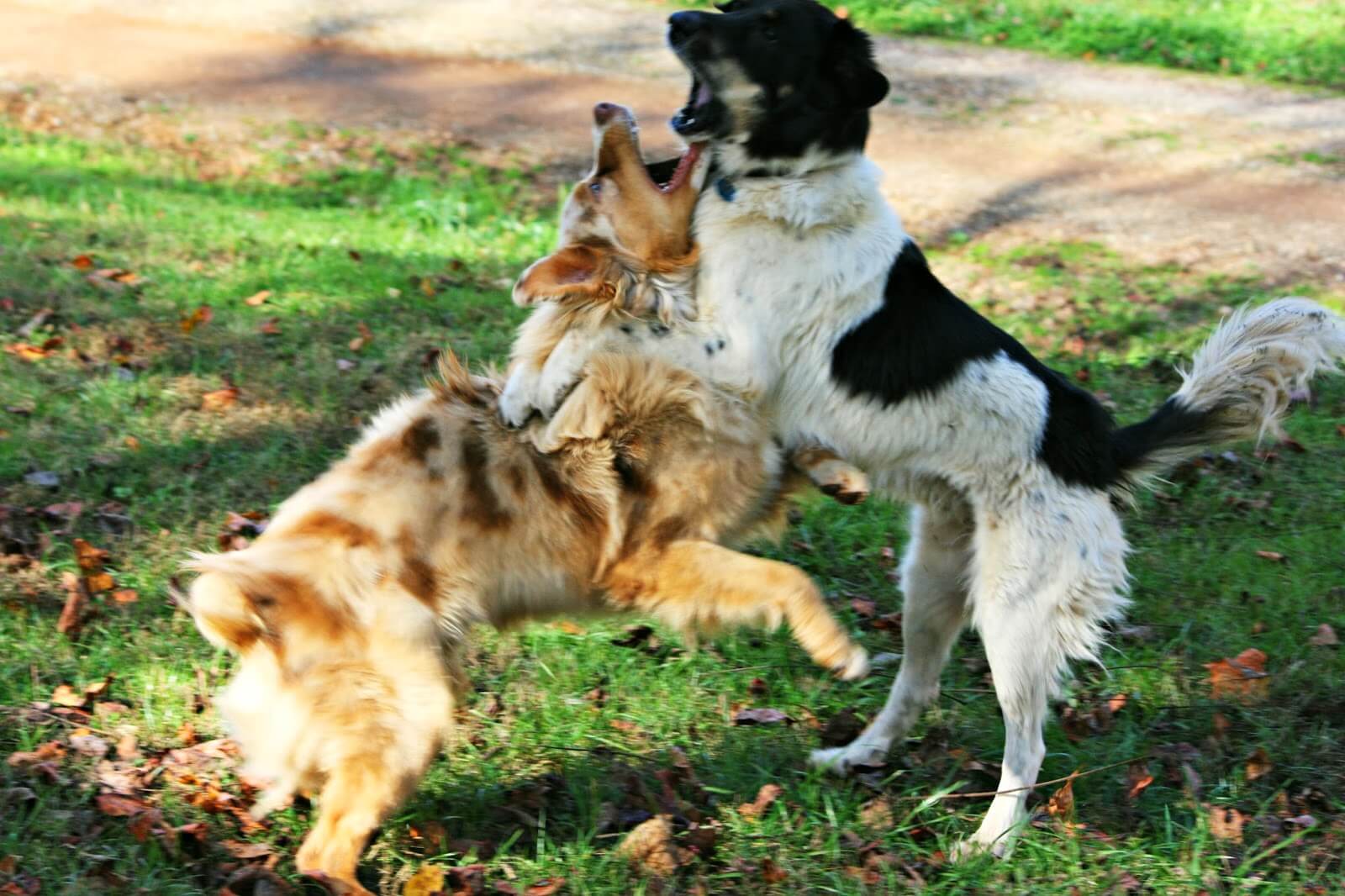
One of the problems dog lovers sometimes face is how to stop dog barking at other dogs. In fact during walks our friend often starts barking suddenly at other dogs that it finds on its path making control quite difficult. The bigger problem however is that we don’t know what the other dog is like. It could react badly by growling or even biting in more extreme cases. Obviously it would be best to avoid this kind of unpleasant situation. Let’s see how train dogs to not bark at other dogs!
Why does my dog barks at other dogs?
Before seeing how to train a dog not to bark at other dogs we have to understand what causes this behavior. The reasons can be many. It can be due to a lack of socialization as puppies or an early detachment from the mother. Not only that because its leash can play a part because dogs are more aggressive when they are on a leash. This is because they feel that their movements and ability to defend themselves are limited, they start threatening their opponents.
Lastly, a possible dog aggression towards other dogs can’t be excluded, especially if it happened when the dog was still a puppy. For example, if as a puppy, your pet went into a dog area and found itself surrounded by adult dogs and it felt threatened it could have developed a fear of other dogs therefore becoming aggressive.

How to stop dog barking at other dogs
To train a dog to not bark at other dogs, we must proceed with extreme patience and calm. Let’s see how:
- Stop at a safe distance from the other dogs and lightly pull on the leash. There’s no need to strangle them;
- Say a loud “NO!”, and you will probably need to be insistent with your order because your dog will be in a state of excitement and might ignore you. Of course, we assume that your dog knows the command “NO” which means “stop doing what you’re doing”;
- As soon as it starts calming down, give it the sit command.
If it responds to your commands, reward it with a biscuit or pet it and tell it it’s a good boy. In any case, remember to reward it only a few minutes after it obeys your command because during this time your friend must be calm and not show interest in the other dog. If you can’t solve the problem with these tips, turn to a good dog trainer and/or dog behaviorist who will be able to get to the root of the nature and origins of your dogs’ aggressiveness “on the leash”.




















